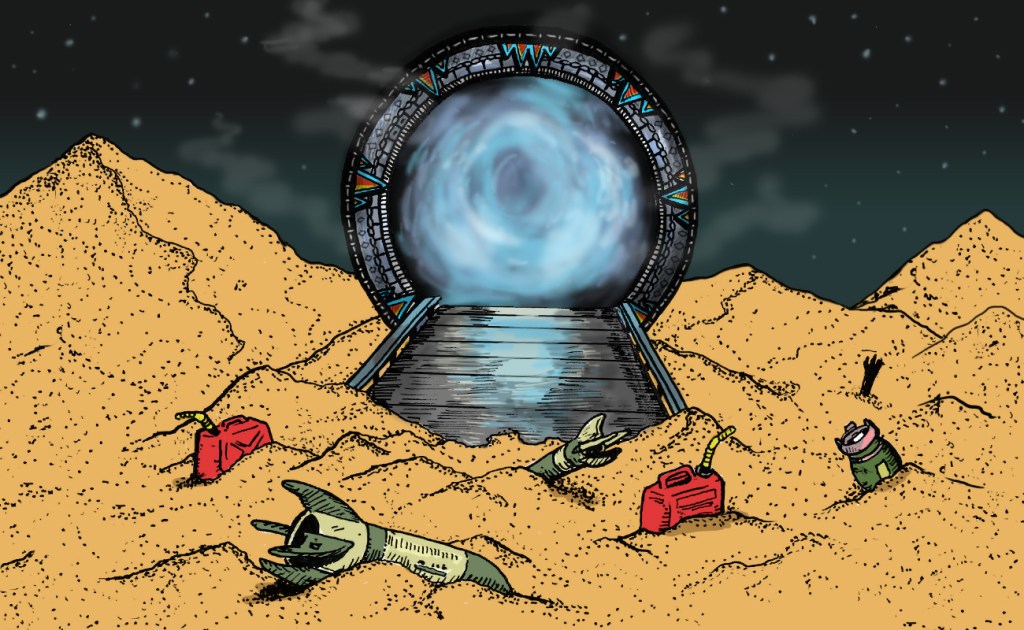Photo by the author
When you’re confronted with something like a teenage Swedish rapper named Yung Lean, you’re pretty much required to learn more, to listen at least once, just to know what the deal is. When you’re confronted with Yung Lean’s first ever show in Mexico, the same holds true. You have to go. And that’s where I found myself Saturday, the first day of one of Mexico’s largest music festivals, Corona Capital: with an entire bill of acts in front of me in which exactly one could be classified in any way as hip-hop, that one being said Arizona Iced Tea-loving Sad Boy.
Videos by VICE
Throughout my first 24 hours in the country leading up to the show, I was repeatedly told by pretty much everyone I talked to about the festival that hip-hop is not very big in Mexico. The lineup of Corona Capital, which was composed solely of non-Mexican acts, reflected this opinion. But this is a global era, which is how we ended up with Yung Lean in the first place. Sweden could probably be seen as a place where hip-hop is not very popular—as Lean told Noisey last year, “the rap scene sucks”—but hip-hop as a Swedish cultural force didn’t have to be particularly prominent for him and his friends to get into listening to Lil B and Main Attraktionz. The same goes for anywhere else: After the show, I talked to Pablo Escoto, an 18-year-old from Mexico City, who said he’d gotten Unknown Death 2002 a few months earlier and now follows Yung Lean on Soundcloud. “I like Sad Boys,” he told me, before listing a few other rappers who had recently made it to Mexico for the first time: Danny Brown, A$AP Ferg, Tyler the Creator. “I’m not sure if Yung Lean has shows this often with this many people,” he added. “I was excited.”
So of course there were a ton of teenagers at Yung Lean’s first Mexico show who knew the words to Yung Lean’s songs, despite those words being in both their and the performer’s second language. This level of recognition would be impressive for any act playing at 3 PM at a festival, let alone one in which both sides of the stage-audience divide had a slight—and slightly different—cultural disconnect from the sounds happening onstage. Then again, part of the appeal of Yung Lean in the first place is that he takes phrases from American hip-hop—“bitch I grind,” “they want me locked up,” “iced out”—and strips them of context and meaning. Yung Lean’s music is compelling because it is hip-hop that is unabashedly just about the sounds that are coming out, with no concern about where those sounds are coming from. At Corona Capital, the facts that Yung Lean exists, that he infuriates a large swath of the people who know he exists, that he makes music that sounds a bit like Chief Keef run through Google Translate a couple of times were immaterial. Yung Lean was playing music for a crowd of several hundred kids in a tent at a festival. And the music was awesome.
The sound system in the tent was incredibly loud, and loudness is where Yung Lean thrives. His beats are huge, beautiful, aqueous compositions, and at high volume they become totally immersive. And while Lean’s rapping on record can come across deadpan, in person the effect is closer to blunt shouting, a quality that translates well to hyping up a crowd. Together, these things ensure that Yung Lean, like the best live rappers, is totally, inescapably, in your face. Just as he was during his US debut in New York, Yung Lean was all over the place, effortlessly smooth and contagiously energetic, although here the sound was better and more overwhelming. He seemed pretty happy (or Sad?) to be there, and, unlike many of the weekend’s performers, had prepared some banter in Spanish: “Que pasa!” (what’s up!) and “Donde está la mezcal?” (where is the mezcal?). His hype man wore an impeccable outfit of a floral shirt, track pants, wraparound sunglasses, and some type of athletic gloves, and when he yelled to “turn up!” the crowd complied, whether they knew that exact phrase or not.
For all the critiques of Yung Lean, this is perhaps the most solid rebuttal: Yung Lean’s live show kicks ass. Yung Lean’s live show can get hundreds of people shouting the phrase “I’ma make you hurt” at the top of their lungs in their second language. Yung Lean’s live show can literally make you cry while he’s talking about crying because the sound is so overwhelming. Yung Lean’s live show contains a perfect rap line: “all this money don’t make me sad, though.” In the moment in which you hear this line in a foreign country, with many hundreds of pesos in your pocket (the exchange rate is roughly 13 pesos to the dollar, so you can flash hundreds with, like, 25 dollars on you), it is very difficult to be sceptical of Yung Lean. You can be Sad, but you will definitely not be sad. Likewise, you can be mad about culture and context and what it means for hip-hop that a kid from Sweden is half-singing over these weird dreamlike beats to a crowd in Mexico, but you can’t really be mad about what it means for hip-hop because ultimately that’s how far hip-hop has spread, that’s how small the internet has made the world. In that moment, as in countless other weird and diffuse ways, it’s just music, and it’s totally universal.
Kyle Kramer is Sad. Kyle Kramer is on Twitter.

